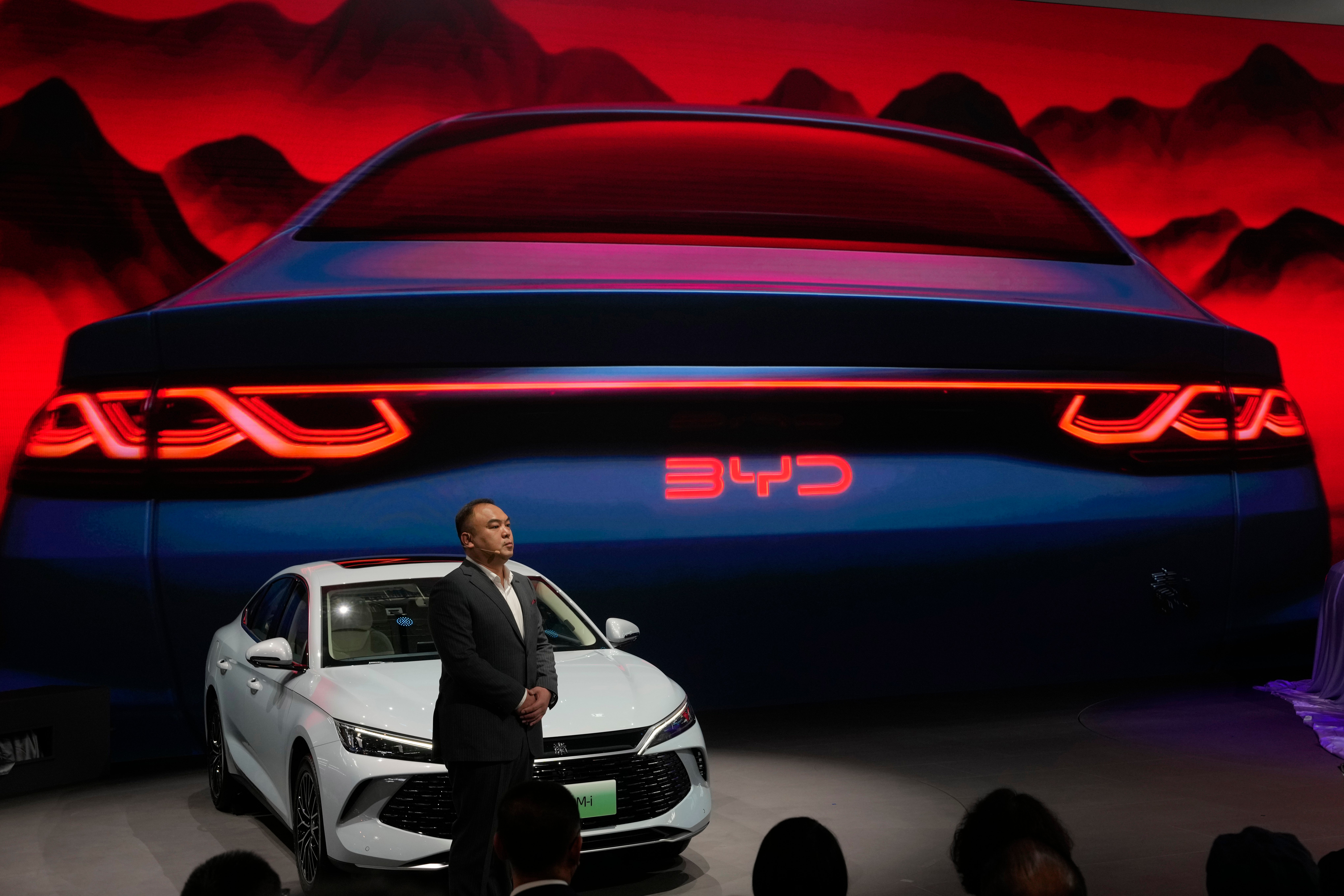China's BYD inaugurates first plant in Thailand as it expands reach into Southeast Asia
Chinese automaker BYD has inaugurated its first electric vehicle plant in Thailand, part of the company's effort to expand into Southeast Asia while also tackling wealthier markets in the U.S. and Europe

Chinese automaker BYD inaugurated its first electric vehicle plant in Thailand on Thursday, part of the company’s push into Southeast Asia while it also tackles wealthier markets in the U.S. and Europe.
The factory’s opening comes on the same day that the European Union is expected to begin imposing higher tariffs on EVs made in China due to concerns over competition from the cheaper-priced imports.
In the U.S., the Biden administration also is raising tariffs on Chinese EVs to 100% from the current 25%. The U.S. currently imports very few Chinese cars, but like the European Commission, it worries that subsidies hurt domestic companies and cost jobs.
The new factory in Rayong, south of Bangkok, was built in just 16 months and has an annual production capacity of 150,000 vehicles. It makes several BYD models and also batteries and transmissions. Its opening on Thursday was marked with great fanfare and included the presentation of a BYD Dolphin, a compact hatchback, to a charitable foundation under the patronage of the Thai royal family.
That vehicle was the 8 millionth vehicle manufactured by BYD, the company said.
Thailand aims to have 30% of all vehicles made in the country be electric by 2030. One in every three EVs sold in Thailand is made by BYD, though most cars on the roads now are still gas or diesel powered.
BYD, which stands for “Build Your Dreams,” sold 3 million vehicles last year and its exports more than tripled to 243,000. In the first half of this year, the company sold 1.6 million EVs.
It sold 30,650 EVs in Thailand last year and plans for its new factory to make the Dolphin, Atto 3, Seal and Sealion 6 EV models.
BYD says the new factory is expected to create 10,000 jobs. Apart from Thailand and China, BYD also has or is building factories in Brazil, Hungary and Uzbekistan.
According to BYD, the Dolphin can run 490 kilometers (about 300 miles) on a single charge. During a recent auto show in Bangkok, models on display were priced at 859,999 baht ($23,700), though reports said BYD would be offering steep discounts in Thailand on vehicles made in the new factory.
Bookmark popover
Removed from bookmarks